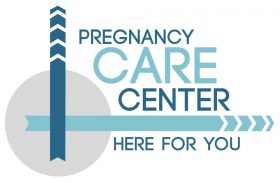The Supreme Court overturned Roe v. Wade in 2022, causing abortion to no longer be upheld as a constitutional right. Instead, the power to decide the legality of abortion has been given to each state. This means that each state gets to choose whether it will allow abortion or not.
While it can be difficult to separate fact from fiction when it comes to the overturning of Roe v. Wade, we’ve compiled the essentials you need to know. Read on to learn more.
Or, if you think you might be pregnant and want to talk to someone, contact Pregnancy Care Center today to connect with one of our caring staff members. All appointments and resources are free and confidential.
What Does the Overturning of Roe v. Wade Mean for Women Who Are Seeking Abortion?
In 1973, Roe v. Wade was a landmark case in which the Supreme Court ruled that abortion was a protected right under the Constitution.
After the overturning of Roe v. Wade, the states gained the power to decide whether abortion is legal in the state or not, as well as the details surrounding the legality of abortion.
All of this means that a woman’s access to abortion is dependent upon the state in which she lives.
At the time of this writing, abortion is banned after six weeks gestation (which means it’s been six weeks since your last period) in Georgia.
What If I’m Considering Abortion and Live in Georgia?
Facing an unplanned pregnancy can cause a lot of anxiety, especially as you consider your options.
Before making this decision, it’s critical to receive an ultrasound to determine what options are available to you and to protect your health.
An ultrasound can help confirm the following details about your pregnancy:
- Age: Knowing your pregnancy’s age is critical when considering abortion since certain options, like the abortion pill, are only FDA-approved if your pregnancy is ten weeks gestation or under.
- Location: In rare cases, a pregnancy will develop outside the uterus. This is known as an ectopic pregnancy, and it’s a life-threatening emergency that requires immediate medical intervention.
- Viability: Roughly 26% of all pregnancies end in miscarriage—and if you’ve experienced one, you will need medical follow-up to ensure you don’t experience any complications.
We’re Here for You
You’re not alone as you face an unplanned pregnancy. At the Pregnancy Care Center, we’re here for you.
We offer free pregnancy resources (including limited ultrasounds) and information to help you have all the information you need to make an informed decision.
Before leaving the state to seek an abortion, help protect your health by scheduling your free appointment at Pregnancy Care Center.
